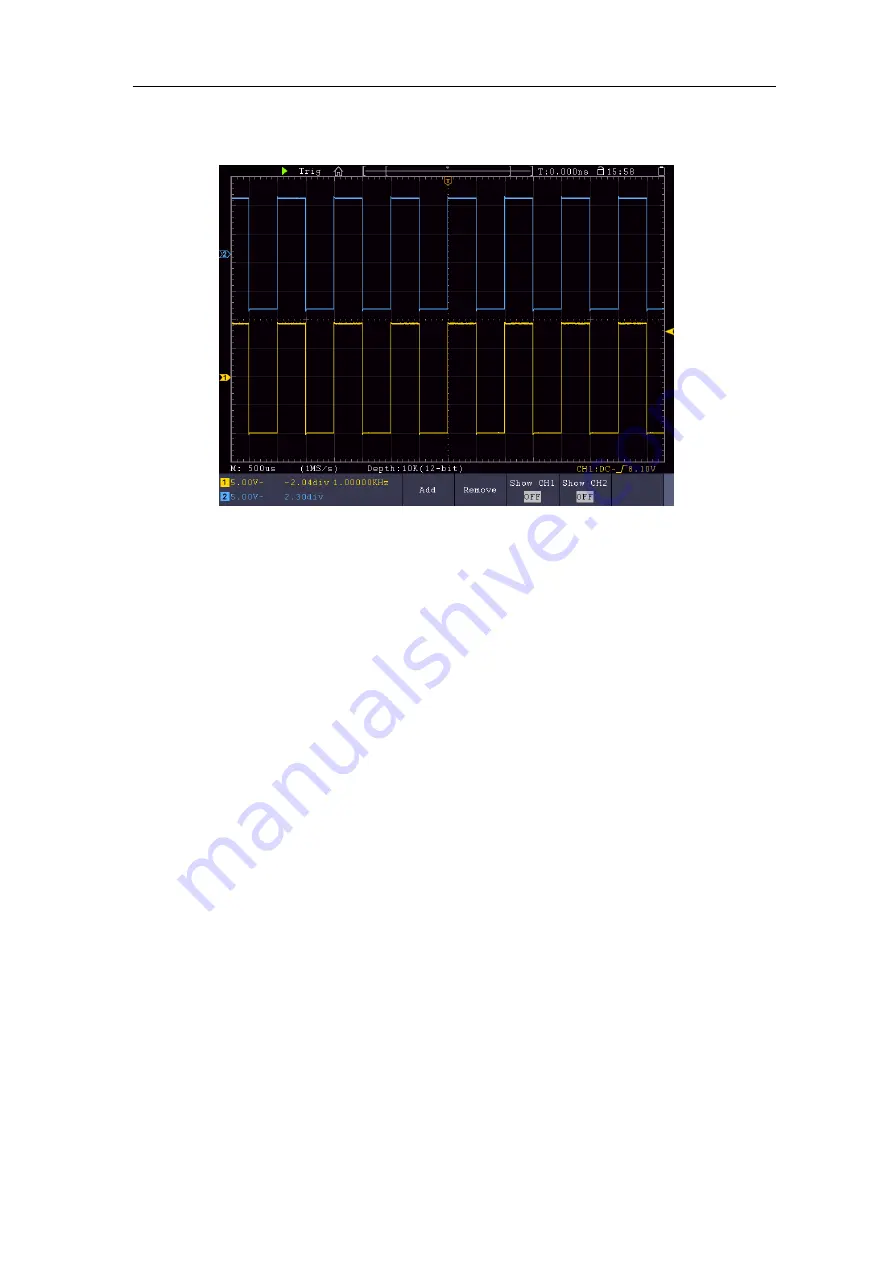
9.Demonstration
133
Gain = Output Signal / Input signal
Gain (db) = 20×log (gain)
Figure 9-2 Waveform of Gain Measurement
Example 3: Capturing a Single Signal
It's quite easy to use Digital Oscilloscope to capture non-periodic signal, such as a
pulse and burr etc. But the common problem is how to set up a trigger if you have no
knowledge of the signal? For example, if the pulse is the logic signal of a TTL level,
the trigger level should be set to 2 volts and the trigger edge be set as the rising edge
trigger. With various functions supported by our Oscilloscope, user can solve this
problem by taking an easy approach. First to run your test using auto trigger to find
out the closest trigger level and trigger type, this helps user to make few small
adjustments to achieve a proper trigger level and mode. Here is how we achieve this.
The operation steps are as follows:
(1)
Set the probe menu attenuation coefficient to 10X and that of the switch in the
probe to 10X
(see "
How to Set the Probe Attenuation Coefficient
(2)
Adjust the
Vertical
Scale
and
Horizontal Scale
knobs to set up a proper vertical
and horizontal ranges for the signal to be observed.
(3)
Push the
Acquire
button to display the Acquire menu.
(4)
Select
Acqu Mode
in the bottom menu. Select
Peak Detect
in the right menu.
(5)
Push the
Trigger Menu
button to display the Trigger
menu.
(6)
Select the first menu item in the bottom menu. Select
Single
in the right menu.
(7)
In the left menu, select
Edge
as the mode.
(8)
Select
Source
in the bottom menu. Select
CH1
in the right menu.
Summary of Contents for Dual-Channel Series
Page 1: ...XDS3000 Dual Channel Series Digital Storage Oscilloscopes User Manual www owon com ...
Page 29: ...3 Junior User Guidebook 22 Double Zoom Single Zoom ...
Page 42: ...4 Advanced User Guidebook 35 Figure 4 2 Rectangle window Figure 4 3 Blackman window ...
Page 43: ...4 Advanced User Guidebook 36 Figure 4 4 Hanning window Figure 4 5 Kaiser window ...
















































